
 |
||||
|---|---|---|---|---|
| Volume 50 Number 18, May 16, 2020 | ARCHIVE | HOME | JBCENTRE | SUBSCRIBE |
Workers' Weekly Internet Edition: Article Index : ShareThis
Coronavirus Contact Tracing and Tracking App Trials Begin on the Isle of Wight
Letter to the Editor:
No Rolling Over - No Guinea Pigs on the Isle of Wight!Coronavirus Pandemic:
Coronavirus and Civil Liberties
Independent Scientists Criticise Government's Covid-19 Approach
The Neo-liberal Fiction of "Balance"
For Your Information:
Herd Immunity and Social ExperimentationWorkers' Forum:
Assessing Where We Are in the Fight to Make Health Care a Right for All
Government's Rushed and Reckless Call for Schools, Colleges and Nurseries to Start OpeningWorkers' Movement:
Education Unions' Statement on the Safe Reopening of SchoolsNews in Brief:
Headteachers' union says schools cannot fulfill government's 'unrealistic' criteria to reopen75th Anniversary of the End Of World War II:
75th Anniversary of the Victory over Fascism in Europe
Causes and Lessons of World War II
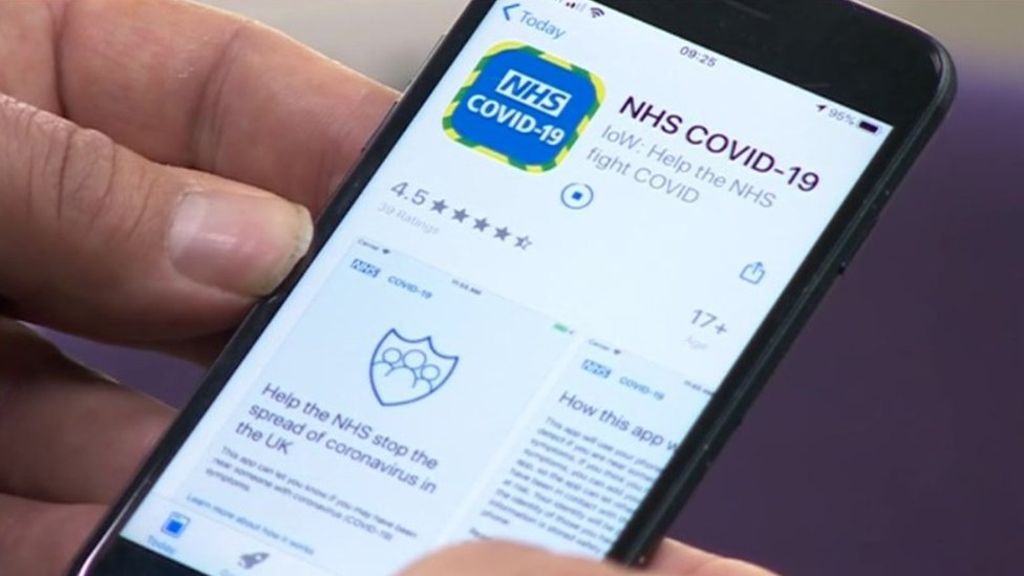
Trials have begun on the Isle of Wight of the Coronavirus Contact Tracing and Tracking smartphone app for tracking cases of Covid-19. The trial began with NHS and other key workers on May 5, followed by the rest of the island's residents two days later. During the trial, an Isle of Wight postcode is required to download the app. The plan is to roll out the app across the country within weeks following the trial.
The app is being developed by National Health Service Experience (NHSX). This body, a private company, was launched in February last year by Health Secretary Matt Hancock to lead the digital transformation of the NHS.
An "anonymous log of how close you are to others will be stored securely on your phone," explained NHSX CEO Matthew Gould. "If you become unwell with symptoms of Covid-19, you can choose to allow the app to inform the NHS which, subject to sophisticated risk analysis, will trigger an anonymous alert to those other app users with whom you came into significant contact over the previous few days." The app will then advise on whether to self-isolate or to seek testing for the virus.
"In future releases of the app, people will be able to choose to provide the NHS with extra information about themselves to help us identify hotspots and trends," he said.
It is a matter of fact that, based particularly on the experience of China and neighbouring countries in dealing with the outbreak, and past experience of other epidemics, the World Health Organisation (WHO) has been advising strict comprehensive measures to contain Covid-19. These measures include quarantine, testing, contact tracing, social distancing, and direct mobilisations of people. As early as February 20, the WHO stated that "the only measures that are currently proven to interrupt or minimize transmission chains in humans" are based on "extremely proactive surveillance to immediately detect cases, very rapid diagnosis and immediate case isolation, rigorous tracking and quarantine of close contacts, and an exceptionally high degree of population understanding and acceptance of these measures". [1]
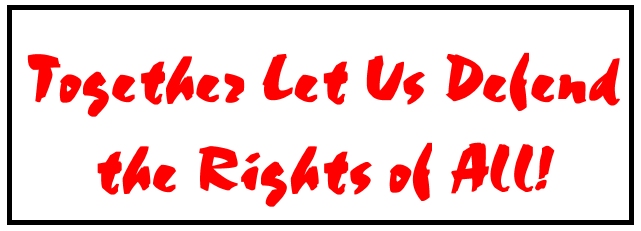
It is also a matter of fact that, to its shame, the British government ignored these guidelines. The results of this course of inaction are now becoming evident.
Given the initial refusal to follow the WHO guidelines, it could be asked as to what is the aim of the proposal for tracking now? In this respect, various people have been speaking out over their concerns. People reject being used as "guinea pigs" and are demanding to have a say. Moreover, concerns are being expressed about the potential for mass surveillance. This is not a concern unique to Britain: a major point of general contention has been over the use of centralised contact tracing, where government bodies centrally record data on people and their contacts. A recent letter signed by over 300 academics [2] expressed opposition to such centralised models.
The British approach is not only centralised, but NHSX are reportedly discussing the collection of de-anonymised identities, allowing the centralised tracking of contacts and movements between identifiable individuals. Further, it is known that the National Cyber Security Centre, a subsidiary of GCHQ, has been involved in the app's development [3].
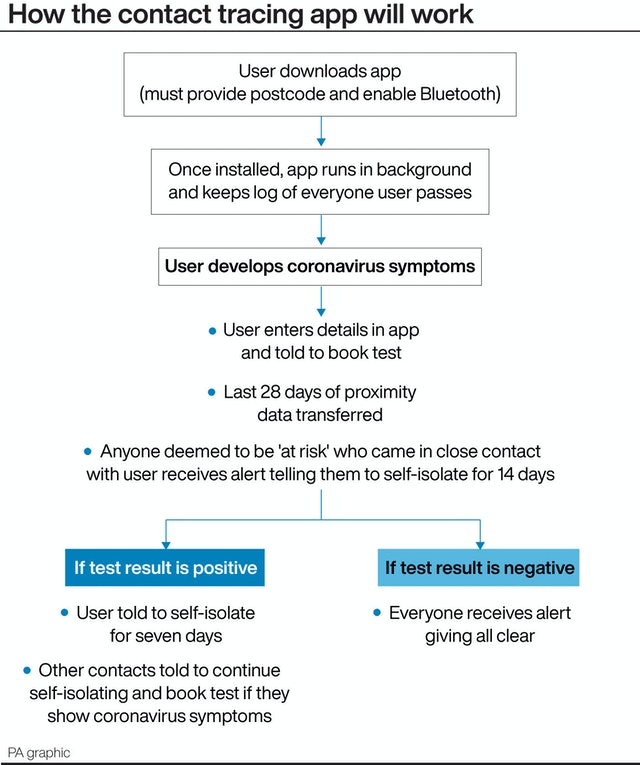
These concerns arise because, particularly at this time, people are excluded from decision-making over such crucial matters that affect their lives, and there is no discussion over aims. Coupled with this is confusion-mongering and disinformation about contact tracing that is disorienting public opinion by depriving people of an informed view and, moreover, an outlook.
The outlook of those in authority is that people are the problem, while the outlook of the people is that they are the solution. It is not the people who did not carry out the WHO guidelines, and only now has the government embarked upon testing and tracing. Just like the previous policy shift from complacency to lockdown, the move is arbitrary, without consultation. In such a situation, when authority is so out of step with the times and the conditions, when authority is built on sand, is mistrusted, and wields its police powers increasingly despotically, speculation and cynicism is rife.
The issue is one of control, particularly control of the information and how it is used. The conditions are such that interests of those making the decisions conflict with the people's interests. The ruling elite still conceive of the crisis as a blip; they want to continue to rule in the old way and return to "business as usual". All talk of an "exit strategy" is framed in these terms, which in turn sets the agenda for lifting lockdown, testing and contact tracing. Indeed, various sections of business, such as the car industry, are already returning to operation. The issue is posed as one of striking a "balance" between safeguarding health and well-being and safeguarding "the economy".
In the final analysis, it is only by activating the human factor that the virus can be contained, and to do so is profoundly democratic, democratic in a new way, a way that involves everyone affected in taking the decision and abiding by it, so that the people exercise their own authority directly. Technology can be used to facilitate the human factor - it is part of the human factor. But when decisions are arbitrary, things are simply reduced to matters of law and order, and contact tracing itself becomes a form of the police powers. Technology is then set up in opposition to eliminate the human factor, to impose authority from outside.
The issue is not to oppose contact tracing. Neither is it to divide over whether pro or anti the app. Contact tracing is a fundamental guideline in suppressing the pandemic, and indeed, it is the government that should be held to account for not following the guidelines promptly and strictly. However, people need to be on their guard. Any shift from surveillance of the epidemic to surveillance of the people must not be permitted.
References
[1] "Report of the WHO-China Joint Mission on Coronavirus Disease 2019
(COVID-19)", WHO, February 16-24, 2020
https://www.who.int/docs/default-source/coronaviruse/who-china-joint-mission-on-covid-19-final-report.pdf
[2] Gareth Corfield, "Academics: We hate to ask, but could governments
kindly refrain from building giant data-slurping, contact-tracing coronavirus
monsters?", The Register, April 20, 2020
http://www.theregister.co.uk/AMP/2020/04/20/coronavirus_contact_tracing_academics_social_graph/
[3] "UK infosec experts flag concern over NHSX contact tracing
app", New Statesman, April 29, 2020
https://tech.newstatesman.com/security/uk-infosec-experts-flag-concern-over-nhsx-contact-tracing-app
Tomorrow people will be receiving their letters to download the app. Well, are we to roll over so easily? I think not - there will be many who say no. What is in it for Isle of Wight people who have sacrificed so much?
Lockdown, and the solidarity and support for each other that people have shown, should not have been for nothing. All of us who have supported each other, suddenly we are all to become heroes on the island and applauded, so it seems.
Big Business wants to get up and running but what about us? There isn't going to be much summer of love or tourism this year. They don't seem to care about small business either, never mind the workers, the unemployed, pensioners, students, sick or disabled.
Are they suddenly going to test everyone in care homes? Give them the PPE? Are they going to solve the problem of Social Care on the Island? Are they going to pay our carers a decent living wage? Surely this is a minimum requirement!
Are they going to upgrade St Mary's after running it down over the years? Are they going to repatriate the parts they have outsourced? Are they going to properly pay the staff?
In other words, "What is the deal?" So far there is no deal, no negotiation. You simply return to work, come out of lockdown, more than likely sacrifice lives to come out of lockdown quickly. Where is the offer, or reward? A pat on the back - for Queen and Country? Not even that.
What about the infrastructure, the fixed link to the mainland? What about other longstanding connectivity issues like an investment in Island Line or doing something about the ferries? What about the high cost of the ferries?
No homes fit for heroes or even shelter for the homeless. It won't push up house prices or provide a safe haven.
They want it all but won't even negotiate a deal. Are people simply going to trust the Tories again? If they think people are going to come out of lockdown quickly, they can think again. It won't be business as usual. I would suggest to those people with the best intentions, don't roll over so easily, don't be naive and don't give in too quickly to these gangster politicians. If it is a return to profit off our backs, then they should pay.
The people got organised very quickly. They set up their support group and mechanism for each other. New friends and acquaintances have been made. Don't let it go. Keep it going. Otherwise, where is the voice on social media? We need the personalities and the authority of that voice.
If they are intent, then drive a hard bargain.
Reader on the Isle of Wight
Extract from the Blog of Craig Murray, May 6, 2020
We are now to be expected to entrust ourselves to a new coronavirus tracing app, currently being trialled on the Isle of Wight, that allows the government to know precisely where we are and with whom. The results will be permanently stored in a central database - something that is not required for the ostensible purpose of the app. The UK is alone among European states in seeking to create a national centralised database containing traceable unique identifiers for individuals. Precisely to address civil liberties concerns, all other countries are using a devolved database approach with amalgamation only of research useful data which cannot identify individuals. The UK is also refusing to share code with the public, or even precise detail of developers. The US firm Palantir, which has developed the app for NHSX, is coy about where its development is carried out and by whom. So far nothing has been released on the architecture of the App.
[...]
There is no organisation or group with an interest in data privacy which is not sounding the alarm. The Register reports:
Controversially, the NHSX app will beam that contact data back to government-controlled servers. The academics who signed today's open letter fear that this data stockpile will become "a tool that enables data collection on the population, or on targeted sections of society, for surveillance".
As we reported yesterday, Britain has abandoned the international consensus on how much data should be collected to fight the COVID-19 pandemic.
The letter said:
We hold that the usual data protection principles should apply: collect the minimum data necessary to achieve the objective of the application. We hold it is vital that if you are to build the necessary trust in the application the level of data being collected is justified publicly by the public health teams demonstrating why this is truly necessary rather than simply the easiest way, or a "nice to have", given the dangers involved and invasive nature of the technology.
Then a further report in The Register emphasised still more the UK government's rejection of the Apple-Google app being used by virtually every other country, which is specifically devised to make impossible centralised storing of information which identifies individuals:
Presumably the goal with this kind of explanation is to comfort the vast majority of UK folk who don't understand how the entire internet economy works by connecting vast databases together.
So long as you can rely on one piece of per-user data - like a "big random number" - everything else can be connected. And if you also have a postcode, that becomes 100 times easier. Ever heard of Facebook? It's worth billions solely because it is able to connect the dots between datasets.
Indeed, it may be possible to work out who is associating with whom from the app's ID numbers. Bear in mind, the Apple-Google decentralised approach produces new ID numbers for each user each day, thwarting identification, especially with the ban on location tracking.
Levy also glossed over the fact that as soon as someone agrees to share their information with UK government - by claiming to feel unwell and hitting a big green button - 28 days of data from the app is given to a central server from where it can never be recovered. That data, featuring all the unique IDs you've encountered in that period and when and how far apart you were, becomes the property of NCSC - as its chief exec Matthew Gould was forced to admit to MPs on Monday. Gould also admitted that the data will not be deleted, UK citizens will not have the right to demand it is deleted, and it can or will be used for "research" in future.
[...]
I should make my position perfectly plain. I think a coronavirus tracing app is an important tool in containing the virus. I would happily use the safeguarded one being developed by Google/Apple with decentralised data and daily changing identifiers, not linked to postcodes, being adopted by major European governments.
But I think serious questions have to be asked about why the UK government has developed its own unique app, universally criticised for its permanent central data collection and ability to identify individuals from their unique codes. [...]
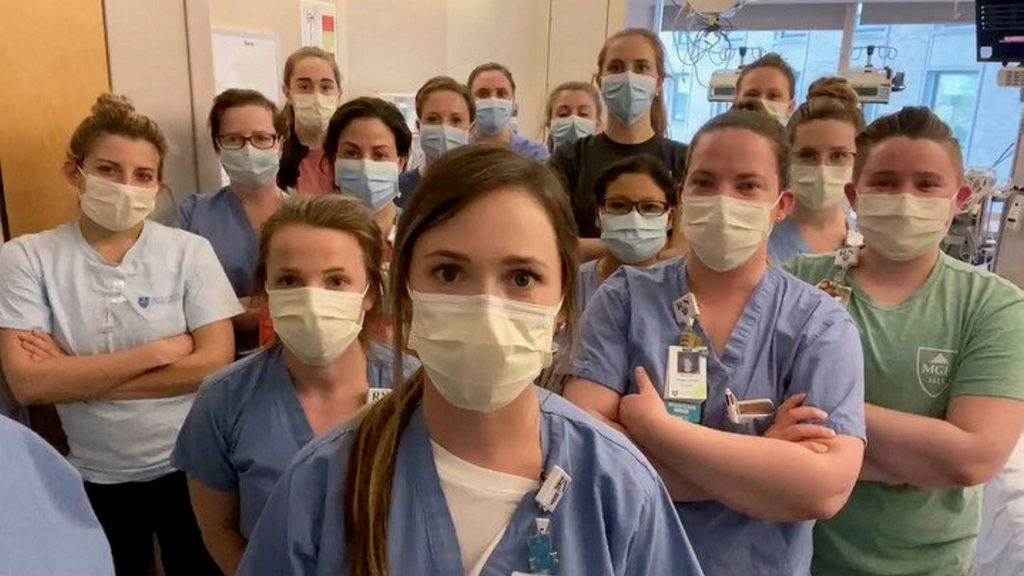
The government's decision to outsource coronavirus contact tracing to private call centre operators including Serco has been condemned as bewildering by an independent group of scientists set up in parallel to the government's official science advisers.
The Independent Scientific Advisory Group for Emergencies, led by former chief scientific adviser Sir David King, published a report on May 12 criticising the government's Covid-19 approach so far, from its use of statistics to its new "stay alert" messaging.
The report warns that easing of the lockdown is dangerous and that further local Covid-19 epidemics are going to be inevitable. It accuses the prime minister of not "following the science", and criticises the limited aim of flattening infections to ensure that the NHS is not "overwhelmed". It says: "We find this attitude counter-productive and potentially dangerous."
The report continues: "Without suppression, we shall inevitably see a more rapid return of local epidemics and face the prospect of further partial or national lockdowns."
The report also strongly criticises the controversial new "stay alert" and "control the virus" messages, saying they must be replaced with much clearer advice "closely linked to action".
Sir David King said: "Since the start of the Covid-19 epidemic, the government has told us they are 'following the science'. However, in the weeks and months that have followed, it has become increasingly apparent that this is simply not the case."
Independent Sage was set up because of criticism that the official Sage was failing to fully reflect scientific opinion and was too secretive. In addition to Sir David King, members of the Independent Sage include Professor Gabriel Scally, a pre-eminent epidemiologist, public health expert Professor Allyson Pollock, and Professor Anthony Costello, a former director of the World Health Organisation (WHO).
In its report, Independent Sage:
* Attacks the apparent decision to stop community testing for the
coronavirus in March and "allow the epidemic to spread and build herd
immunity";
* Criticises the government's use of "inaccurate, incomplete and selective
data", calling for the Office for Statistics Regulation to assess it;
* Calls for local public-health teams to be given the resources to track and
trace every case - instead of being "bypassed" in favour of private
firms;
* Warns that the existing modelling of the critical "R" reproduction
rate is "3-4 weeks out of date";
* Calls for people with Covid-19 symptoms to go into quarantine for 14 days -
rather than just 7 - as the WHO has recommended;
* Warns it would be "foolish" to bank on a vaccine soon, with
"recurrent local outbreaks" possible for at least a year.
(New Scientist, Independent)
On May 11, the government published its official Covid-19 recovery strategy, "Our plan to rebuild" [1]. The stated "aim at the centre of this plan" is to "return to life as close to normal as possible, for as many people as possible, as fast and fairly as possible in a way that avoids a new epidemic, minimises lives lost and maximises health, economic and social outcomes".
The second section, entitled "Our aims: saving lives; saving livelihoods", elaborates:
"The Government's aim has been to save lives. This continues to be the overriding priority at the heart of this plan.
"The Government must also seek to minimise the other harms it knows the current restrictive measures are causing - to people's well-being, livelihoods, and wider health. But there is a risk that if the Government rushes to reverse these measures, it would trigger a second outbreak that could overwhelm the NHS. So the UK must adapt to a new reality - one where society can return to normal as far as possible; where children can go to school, families can see one another and livelihoods can be protected, while also continuing to protect against the spread of the disease."
The underlying theme, already evident here, is of striking a balance: "Balancing the different considerations will involve some difficult choices."
There are various such "considerations" covered, under the headings of health, economic and social effects. But the title has already summed it up: "lives" vs "livelihoods", where, by sleight of hand, "livelihood" is made synonymous with "the economy", with "rebuilding", with securing success of business.
Hence, "the Government will need to steadily redesign the current social distancing measures... and carefully wind down economic support schemes while people are eased back into work."
This is the main point: getting people back to work, asap.
The notion is that there is a balance to be struck, a trade-off between the health and of the population and health of "the economy". The economy is thus pitted against the people. This spurious notion does not recognise that both economy and healthcare are matters of human relations and that the economy should be directed at the health and well-being of the people as its number one aim.
Notions of "balance" are a characteristic of liberal thought. Capitalism in its ascendency gave rise to liberal notions of democracy and rights that militated against the Old, the Feudal order. It gave rise in particular to the doctrine of the greatest good for the greatest number as a guide for governance and civil society.
Connected with the theory of natural aristocracy, the new capitalist hierarchy, this doctrine was commensurate with the aim of developing society in the image of the capitalist class, involving nation-building, including public works, and so on, with the capitalists as the natural rather than God-given ruling class. The party system, balancing various accommodated forces and the notion of a sovereign power authorised to speak and act in everybody's name was a democracy for the ruling elite; the masses were excluded from power.
In the present, however this is itself the Old: we are no longer in that period. In reality there is no balance. It is simply a fiction. There is no prevailing notion of the general interests of society, and no yardstick for the "the greatest good for the greatest number". "The economy" is synonymous with the interests of big business - the monopolies and global oligopolies.
On that basis, striking the right balance, as if it were an optimisation problem, a problem of engineering, is used as a smokescreen for the imposition of "exit strategies" on the population. "Our plan to rebuild" is neither "our" plan - it is that of the ruling elite, nor is it indeed a "plan" - it is pure pragmatism. Exit is even imposed by business unilaterally, with sections of manufacturing having returned to work even before the announced relaxation measures. Now the government brazenly announces that people should return to the workplace when unable to continue from home, with all the implications of pressure being exerted on individual workers to act against their own well-being.
The issue for the workers is that this is our economy and we decide. It should be directed at meeting our needs, not be opposed to them. Making dangerous concessions to the interests of the rich is not going to provide any solution to the crisis; rather, it will jeopardise the progress made against the spread of the virus, endangering everyone and threatening the economy even further.
[1] "Our plan to rebuild: The UK Government's Covid-19 recovery
strategy", The Cabinet Office, May 11, 2020
https://www.gov.uk/government/publications/our-plan-to-rebuild-the-uk-governments-covid-19-recovery-strategy
Before coming under pressure and moving towards lockdown, it is well known that the government was following a policy of "herd immunity" in response to the coronavirus pandemic. That disastrous approach was revealed when its top advisor, Dr David Halpern, stated earlier in March that: "There's going to be a point, assuming the epidemic flows and grows as it will do, where you want to cocoon, to protect those at-risk groups so they don't catch the disease. By the time they come out of their cocooning, herd immunity has been achieved in the rest of the population." [1]
Dr Halpern, a psychologist, is chief executive of the Behavioural Insights Team (BIT), commonly called the "Nudge Unit", so called because of its method of intervening in the behaviour of the population. He is also a member of the Scientific Advisory Group for Emergencies (Sage), and as such is a key figure in guiding the policy on dealing with the pandemic. He was also an adviser in Tony Blair's strategy unit [2].
BIT is a social purpose organisation set up by the Cameron Clegg coalition government in 2010 and which was privatised in 2014. It was created to apply a form of behavioural science called "nudge" theory to government policy. This guiding idea is a theory of social experimentation, which promises governance via subtle influences over a population's behaviour rather than legislation. Its creator, Richard Thaler, received the Nobel Prize for Economics in 2017 for incorporating "psychologically realistic assumptions into analyses of economic decision-making. By exploring the consequences of limited rationality, social preferences, and lack of self-control, he has shown how these human traits systematically affect individual decisions as well as market outcomes." [3]
Written evidence to the Lords Science and Technology Committee in 2010 stated:
"It has been reported that the Government has set up a 'nudge unit' in the Cabinet Office to decide how 'choice architecture' can be used to 'nudge' our behaviour in beneficial directions and has recruited Richard Thaler, the academic responsible for the eponymous book Nudge as an advisor. Thaler believes that 'it is legitimate for choice architects to try to influence people's behaviour in order to make their lives longer, healthier and better.'
"Thaler is a supporter of what he calls 'Libertarian paternalism'. He goes on to say that 'in our understanding a policy is "paternalistic" if it tries to influence choices in a way that will make choosers better off, as judged by themselves.' [His emphasis]. And finally that 'Libertarian paternalism is a relatively weak, soft and nonintrusive type of paternalism because choices are not blocked, fenced off, or significantly burdened. If people want to smoke cigarettes, to eat a lot of candy, to choose an unsuitable health care plan, or to fail to save for retirement, libertarian paternalists will not force them to do otherwise - or even make things difficult for them.'" [4]
In 2015, it came to light in a speech by then Minister for Cabinet Office Matt Hancock, the present Health Secretary, that BIT was collaborating with the Department of Health and Department for Work and Pensions in social experimentation to "nudge" the long-term sick, the disabled, and others back into work [5].
"The team are currently working with the Department for Work and Pensions and the Department of Health to trial ideas aimed at preventing people from falling out of the jobs market and going onto Employment and Support Allowance (ESA)," he said. "These include GPs prescribing a work coach, and a health and work passport to collate employment and health information. These emerged from research with people on ESA, and are now being tested with local teams of Jobcentres, GPs and employers."
References
[1] Mark Easton, "Coronavirus: Care home residents could be
'cocooned'", BBC News, March 11, 2020
https://www.bbc.co.uk/news/uk-51828000
[2] Patrick Wintour, "David Cameron's 'nudge unit' aims to improve
economic behaviour", The Guardian, September 9, 2010
https://www.theguardian.com/society/2010/sep/09/cameron-nudge-unit-economic-behaviour
[3] "The Prize in Economic Sciences 2017", press release of the
Royal Swedish Academy of Sciences, October 9, 2017.
https://www.nobelprize.org/prizes/economic-sciences/2017/press-release/
[4] Memorandum by Action on Smoking and Health (ASH) (BC 82), October 8,
2010, in Written Evidence on Behaviour Change for the House of Lords Science
and Technology Committee,
https://www.parliament.uk/documents/lords-committees/science-technology/behaviourchange/BCwrittenevidenceAtoZ.pdf
[5] For example, see Sue Jones, "Revealed: Social Experiments To 'Nudge' Sick And Disabled Into Work", Welfare Weekly, November 6, 2015 (updated January 30, 2018) https://welfareweekly.com/revealed-tories-social-experiments-to-nudge-sick-and-disabled-people-into-work
The speech referred to is that given by Matt Hancock at the Future of Public Services conference 2015. The full text is available at:https://www.gov.uk/government/speeches/future-of-public-services-conference-2015-matt-hancock-speech
Roger Nettleship, Chair of Save South Tyneside Hospital Campaign, in a brief to the Campaign
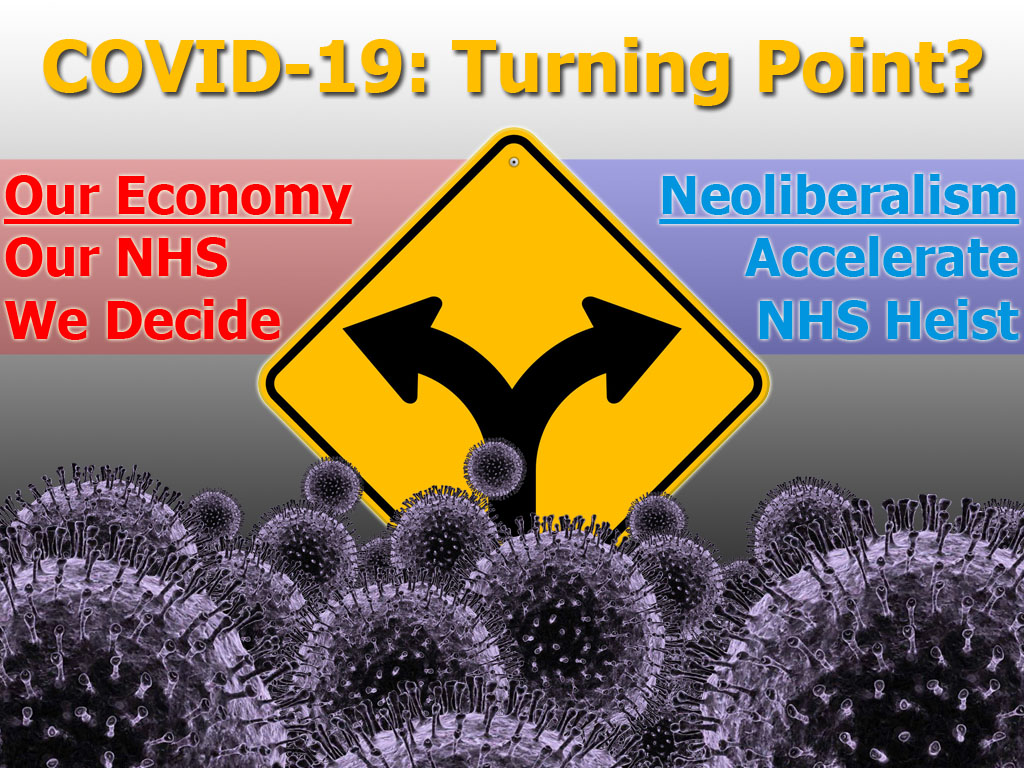
I would like to make the following remarks on why the Save South Tyneside Hospital Campaign (SSTHC) thinks it very important to assess where we are with the work of all those who have been fighting to save hospital services and to make health care a right for all that is guaranteed.
This is because in the present coronavirus pandemic the direction and arrangements that the ruling elite have put in place in our public health and National Health Service have become even more exposed to the people. Then at the same time, the ruling elite are desperately trying to use the crisis to try to block any outcome that favours the people. It is very important for us, therefore, to start to assess the work we have done and where we are in terms of the fight of the SSTHC at this time.
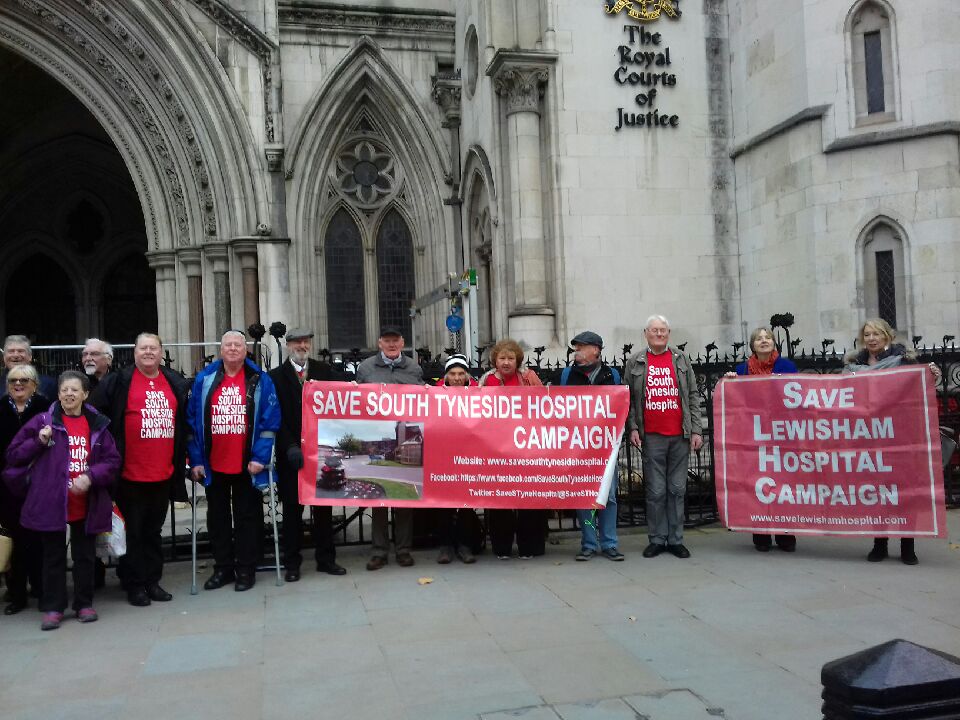
The Save South Tyneside Hospital Campaign at the High
Court Appeal Court in November 2019
At the moment, everyone in the health workers' movement is talking about how the coronavirus pandemic is being used by the government to accelerate the handover of all kind of services to private corporations. This is being implemented when these very same privatised arrangements have already failed to supply vital services and provide protective equipment to health staff and other workers in need of them. For example, with the closure of so many NHS laboratories and the privatisation of others, they could not do the testing and tracing that has always been needed in such an outbreak because of the decimation of the public laboratory capacity. So, handing over huge sums of money for testing and tracing to Deloitte, Serco, Boots, G4S and other private companies that have already failed is hardly going to bring about a better outcome. It is a similar story with the privatised "just in time" supply chains for vital equipment, which were privatised under previous governments ending a well-stocked public service when the contract was handed to DHL and then Unipart.
Further, just as the government is awarding contracts in the pandemic without any scrutiny, NHS England is encouraging independent NHS Trusts to "lock-in" the changes to services when the pandemic is over without even any public involvement. This only confirms further that the path over the years is one where successive governments abrogated their responsibility by making public authorities hand over public health and other health services to either private companies, or a fragmented and corporate-led public sector driven by continued government cuts. In this way, state bodies implement decisions that the people, not only have not been consulted on, but that they oppose, as they do not meet the needs of the population to access the vital services that they need. This includes the now mainly privatised and completely fragmented for-profit care home sector, where so many have died in this pandemic.
In opposition to this, over the years the people have escalated their fight to safeguard the future of public health and other health services all over the country. South Tyneside has a population of 150,000, and a District General Hospital and community and mental health services. In these circumstances, it has necessitated our building a campaign, alongside trade unions and many other fighting organisations in the borough, to save hospital services.
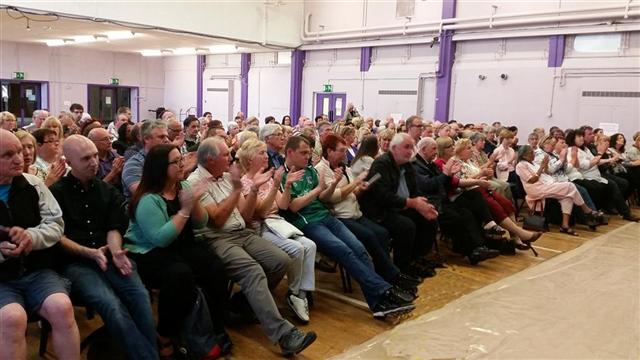
First Public Meeting of SSTHC in South Shields, August
15, 2016
For about four years now, 20 to 30 people from the health and other unions, staff at the hospital working and retired and people from the community meet every two weeks to discuss this fight to save vital services, particularly around the right of all to healthcare and how to guarantee this in a modern society. All over the country, SSTHC has fought alongside other campaigns such as the Save Lewisham Hospital Campaign in London and has taken a stand in uniting all the forces in meetings and well-planned mass actions, as well as waging legal battles together.
This fight together in every part of the country has given the people some security, because although people have not been able to save all the services that are vital for the people in every area, it has seriously delayed the implementation of even worse closures. In South Tyneside for example, they wanted to close hundreds more hospital beds and acute services at our District General hospital by 2017, giving less safe access to vital urgent and acute services and moving these services to already overcrowded services at Sunderland and elsewhere. However, because of the fight of the people these services were still open and available with the onset of the pandemic. People are seeing that the hospital is still here for all because of the fight they have undertaken to save its services over the last four years. And through this, yet more people have become involved in this fight and the fight to save other services, such as end of life palliative care, when a local Hospice in South Tyneside closed its doors last year.
Then with the corona virus pandemic, it became clear that such a fight here and throughout the country can be transformed into an asset for the people by our taking up the battle against the government and authorities over their handling of this virus outbreak.
We have been fighting the refusal to provide the right protection equipment in the quantity needed as well as their refusal to test staff in the health service and care homes for Covid-19 in a timely manner. We are supporting all those health workers and those in our trade union circles in that fight.

For example, we know back in April that the University Hospital of Leicester and Northampton General Hospital medical staff challenged the government guidance and forced those Trusts to implement their own much better guidance. This in turned forced the government to alter its national guidance, although it still was not up to the standard of the recommendations of the World Health Organisation (WHO). But still the fight goes on with staff and unions demanding the right protective equipment for their staff, with proper masks, eye protection and gowns that cover their whole body. Also, there was a protest on Westminster Bridge in the last week of April with medical staff from St Thomas Hospital, where the Prime Minister Boris Johnson was treated, with a banner "We are Not Disposable, We Don't Go to Work to Die". This was a reference to the remark of Health Secretary Matt Hancock that PPE was a "precious resource", meaning that the lives of the staff were disposable and not the precious resource whose lives should be protected at all costs by providing the right material resources to protect them.
Health workers are speaking out on this everywhere in the country and all kinds of actions are taking place against the criminally negligent government guidelines on protective equipment and testing.
Then we have found in our circles, people who either have expertise in social benefits to advise people who have lost their jobs, and then those who are engaging themselves in providing food and meal distribution to those who cannot get out or who are vulnerable and abandoned by the state. This is the positive message that so many people are taking up public responsibility in the face of the criminal negligence of the government and state authorities that are supposed to be responsible, but who are in reality using the crisis to try to strengthen their diktat over the people and serve private interests.
Our assessment today must be that, with all of this experience that we have had over the last four years together, we must keep speaking out and keep the fight going to get an outcome that favours the people, where we make the decisions to ensure that health care is a right for all that is guaranteed in South Tyneside and everywhere else. Let us strive to make this a turning point in the fight for empowerment and an outcome in favour of all the people!
See the Save the South Tyneside Hospital Campaign website: http://www.savesouthtynesidehospital.org/news/covid19_turning_point/

The government is calling for schools, colleges and nurseries to start opening more widely from June 1. This is a rushed and reckless move, putting at risk not only the lives of staff, but of the pupils and students themselves.
Many schools are sending out questionnaires to staff asking them to basically self-certify if they are well enough to return to work, as opposed to asking the staff if they are happy to return to work and consulting with staff at all levels to assess whether it is safe and appropriate to do so at this time. Many teachers are extremely worried about returning to work, not only because of their own vulnerability but because of the very real danger that they might contract the virus form their pupils and then transmit it to their loved ones and family. It is not fair nor acceptable for the government or employers to be imposing an arbitrary date in this way because it may have a material consequences for education workers, and many might well die or become seriously ill as a consequence. It is playing with people's lives. And it raises this question of who are, or should be, the decision makers in this circumstance.
Furthermore, it amounts to a mockery to talk of social distancing for very young children in kindergartens. What happens when they need to go to the toilet or be helped with meals? What happens when the children go out to play? All teachers know that it is impossible to stop children being in contact with each other most of the time, but especially in the playground. And what happens to those kindergarten and primary school teachers, the vast majority of whom are women, who have young children at home? If they are forced to go into work to teach these classes as proposed, there is very limited child care available, and this will immediately create another problem of looking after the children of the teachers whilst they are back at work covering these classes.
The government, who have enlisted the aid of the Children's Commissioner for England, are being dismissive of teachers and those working in schools. They are ignoring the well-being, needs and wishes of the human beings who work at the coal-face delivering the education. It should not be up to the government to decide these critical matters. Teachers across the country have already been working overtime, not just during the term but over the Easter holidays, to deliver a curriculum online for their pupils, and have been having widespread discussion within their unions, their staff bodies, as well as with parents and other bodies connected with the schools. Overwhelmingly, they have concluded that it is not safe and is not reasonable to expect schools to reopen in any form by June 1. Indeed, the NEU, and the vast majority of teachers are saying that the earliest they should expect to return is September, and even then only in a limited form. The government should be listening to the experience and the conclusions of all of these education workers, who have the interests of the nation's children at the very heart of their considerations. The teachers and their unions, together with support staff and their unions, are declaring that it is not possible to safeguard the well-being of the children without first taking care of and safeguarding the well-being of those providing the education.
The NEU and the other five major unions have joined together in declaring that there must be a criteria agreed in order to know when it is safe for schools to return. This is the basis for the NEU's Five Tests, which includes the necessity for testing of staff and children at every educational establishment. So far, the government has simply ignored or dismissed these tests and has ploughed ahead with its own agenda. In the discussions on Friday, May 15, it was clear that the government is not only not listening to the unions and their members, but it denies that the teachers being required to come into schools to teach from June 1 have any right to have a say in what happens. The NEU has declared that this position and this determination to force people back to work when all the evidence is showing that it is way too early to do so, is both "rushed and reckless" and is deeply irresponsible. The government has revealed in all its actions that it has no care for the human being and is only concerned to serve the needs of big business and finance. But teachers across the land are not accepting this and are fighting for what is right and needed, as well as taking account of what will ensure the well-being of all in society.
The teachers and their unions are united on their concern for all pupils, all teachers, and all support staff. Yet the government is refusing to listen. It points the way for teachers to be their own authority. They are providing the solutions, but the government has other concerns. It points the way towards the implementation of education as a right at the highest standard possible, and that the new normal cannot be the same as the old normal, which itself was at breaking point.
The government's insistence on June 1 is a recipe for chaos, as are the rest of the guidelines or lack of them on returning to work, being as they are so incoherent and not directed at providing any way forward, except to attempt to ensure an economy which is geared to benefit the monopolies and multinationals, not an economy which utilises social wealth for the benefit of the people.
Teachers are determined to take the struggle forward on the basis of sorting out the issues with conviction, united in this conviction that implementing their stand collectively is the way forward.
Timeline:
Tuesday, April 14 - NEU leaders, Mary Bousted and Kevin Courtney, sent a letter to the Prime Minster calling for clarity on any decision to reopen schools. This letter went unanswered.
Friday, May 1 - NEU Published its five tests, giving conditions and criteria needed before schools should reopen.
Sunday, May 10 - Boris Johnson announces new Road Map for ending of lockdown and for schools to return by June 1. Changed slogan from Stay Home to Stay Alert!
Monday, May 11 - Thursday, May 14 - NEU engages in mass discussion with its 450,000 members across Britain.
Friday, May 15 - The NEU leadership met with the Education Secretary, Gavin Williamson, to urgently discuss and oppose the early return date for schools.
In a letter to NEU Members, they reported: "The Prime Minister's announcement that schools, colleges and nurseries should start opening more widely from 1 June was rushed and reckless.
"Our response and our position is clear: this should happen only when it's safe. Safe for children, for the staff who care for and educate them, and for the community. The more than 400,000 teachers, teaching assistants, heads, parents and health workers who have signed our petition agree.
"We have written three times to ask for the scientific evidence the Government says proves it's safe to open schools more widely. All we want is to see the science. Our pressure has led to movement: this afternoon, our leaders met with the Government's scientific advisers, asking again for the evidence. But now we need your help."
Friday, May 15 - The British Medical Association publicly supported the NEU saying that the teaching unions had been absolutely right to urge caution and prioritise testing before reopening schools on 1 June.
Saturday, May 16 - The Children's Commissioner for England, Anne Longfield, declares, "Government and teaching unions should stop squabbling and agree a plan to get kids back into school." Thus under the cover of high ideals, of concern for education, especially of disadvantaged children, the dispute between teachers and government is trivialised. The remarks are seen to be directed against the collective of teachers whom they want to paint as just making trouble when they should be working together with the government. But everyone knows that it is the government who should be working with the teachers. The issue is how to make sure all pupils get schooling as soon as possible, but it is the teachers who have the answers.
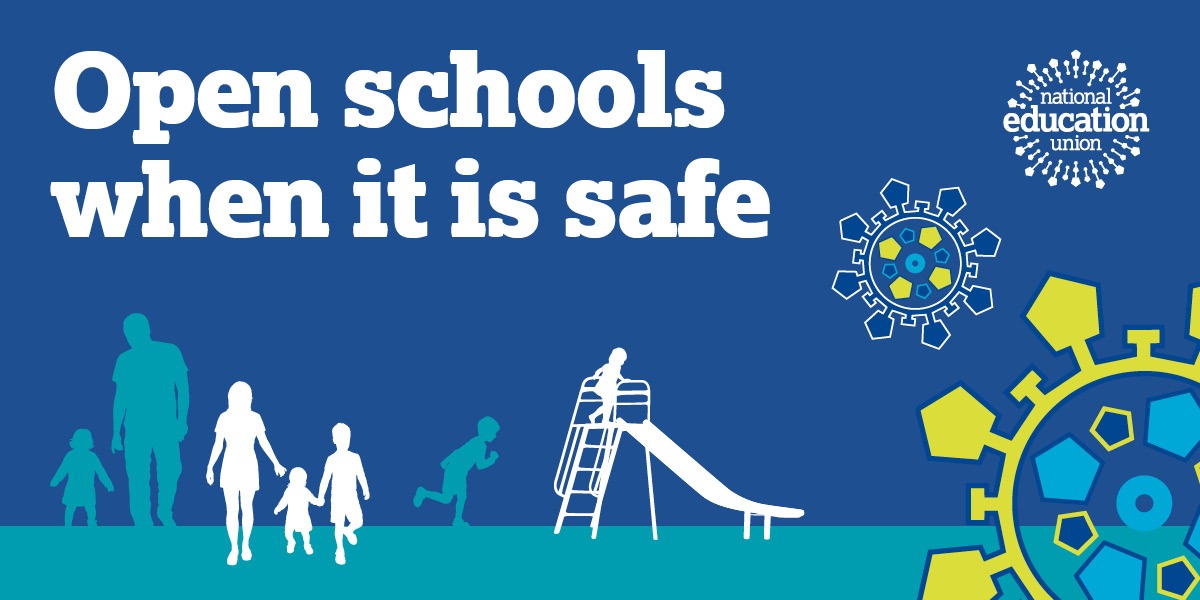
Unions with members in the education sector on May 13 published a joint statement on the safe reopening of schools in England.
Wednesday's statement follows a longer statement to the Secretary of State on Friday, May 8, which set out in full detail the principles and tests necessary for the safe reopening of schools. It is signed by AEP, GMB, NAHT, NASUWT, NEU, NSEAD, Prospect, UNISON and Unite.
Full text of the May 13 statement:
"We all want schools to re-open, but that should only happen when it is safe to do so. The government is showing a lack of understanding about the dangers of the spread of coronavirus within schools, and outwards from schools to parents, sibling and relatives, and to the wider community.
"Uniquely, it appears, school staff will not be protected by social distancing rules. 15 children in a class, combined with their very young age, means that classrooms of 4 and 5-year olds could become sources of Covid-19 transmission and spread. While we know that children generally have mild symptoms, we do not know enough about whether they can transmit the disease to adults. We do not think that the government should be posing this level of risk to our society.
"We call on the government to step back from the 1st June and work with us to create the conditions for a safe return to schools based on the principles and tests we have set out."
The principles and tests include (see full statement from May 8, linked to below):

Note
Statement to the Secretary of State for Education on 8 May: The full statement setting out the principles and tests can be found here: https://www.tuc.org.uk/news/unions-set-out-needs-safe-reopening-schools-letter-education-secretary
(TUC)
A headteachers' union has warned that Britain's schools will not be able to meet the government's target of having all primary pupils back in classrooms before the summer holidays. In a major blow to lockdown easing plans, the National Association of Head Teachers (NHAT) said it had "very significant concerns" about ministers' expectations that children would be able to return before the academic year ends. "These proposals, as they currently stand, are likely to prove impractical and unworkable in most schools," the NAHT said, adding the aim was "not realistic". Education union leaders will meet with the chief medical officer and other experts on Friday to hear the reasoning behind the government's push to reopen schools.
(The Independent)
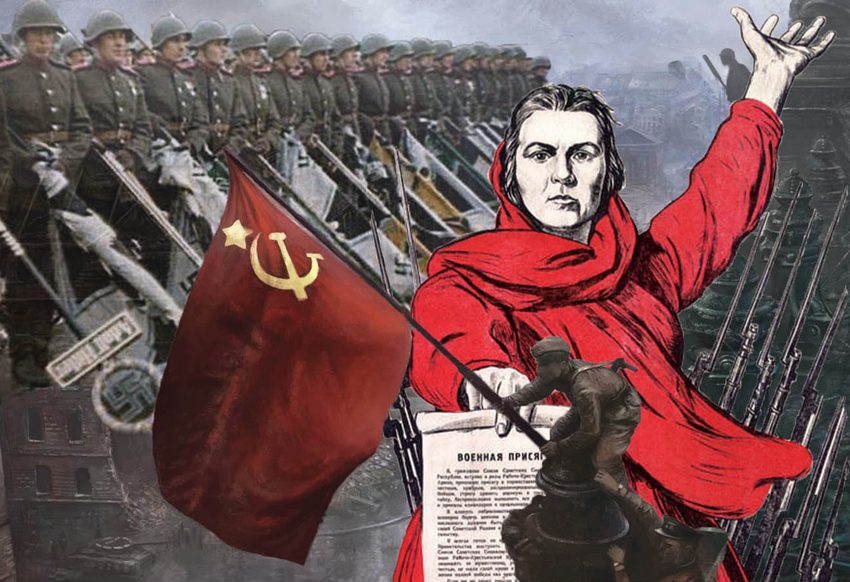
On May 9, 1945, Nazi Germany surrendered to the Soviets in Berlin. Since then, May 9 has been celebrated as Victory Day, recalling the massive sacrifice of the peoples of the world, led by the then Soviet Union, to defeat Nazi-fascism in World War II.
Workers' Weekly salutes the working people of Britain, as well as the peoples of Europe, Asia, Africa and the entire world, who waged this titanic struggle to win their historic victory over fascism. This includes the resistance fighters in the occupied countries who continued the struggle against the Nazi occupiers. We pay deepest respects to all those who died as a result of the anti-human bestiality of Nazi-fascism. We pay tribute to the over 60 million who lost their lives during the Second World War, including the 27 million in the Soviet Union alone. Workers' Weekly salutes the courage and sacrifice of the peoples of the Soviet Union under the leadership of J V Stalin, fighting for peace, freedom and democracy so that humanity would never again know the scourge of fascism and war.
In marking this anniversary, we recognise that we are not just celebrating a historical event from 75 years ago. The issue is to unite as one when the dangers to peace, freedom and democracy, which the peoples of the world fought for and are striving to affirm today, are so great, requiring the release of the power of the initiative of the peoples themselves.
Today, this anniversary is held under conditions of the Covid-19 pandemic. Humanity is engaged in the fight to defend itself in the face of the coronavirus. At odds with the claim in this situation that we are all in this together, Anglo-US imperialism and its cohorts are continuing their attempts to arouse animosity towards China and to isolate Russia, going so far as to deny the Soviet Union's role in the anti-fascist war. One would think from the propaganda of the ruling circles in Britain that the struggle was Britain's alone. This propaganda is also used to suggest that the people should unite in the "battle" against the coronavirus since, like World War II, "we are all in this together" and succumb to the diktat of those in power from the Queen down.
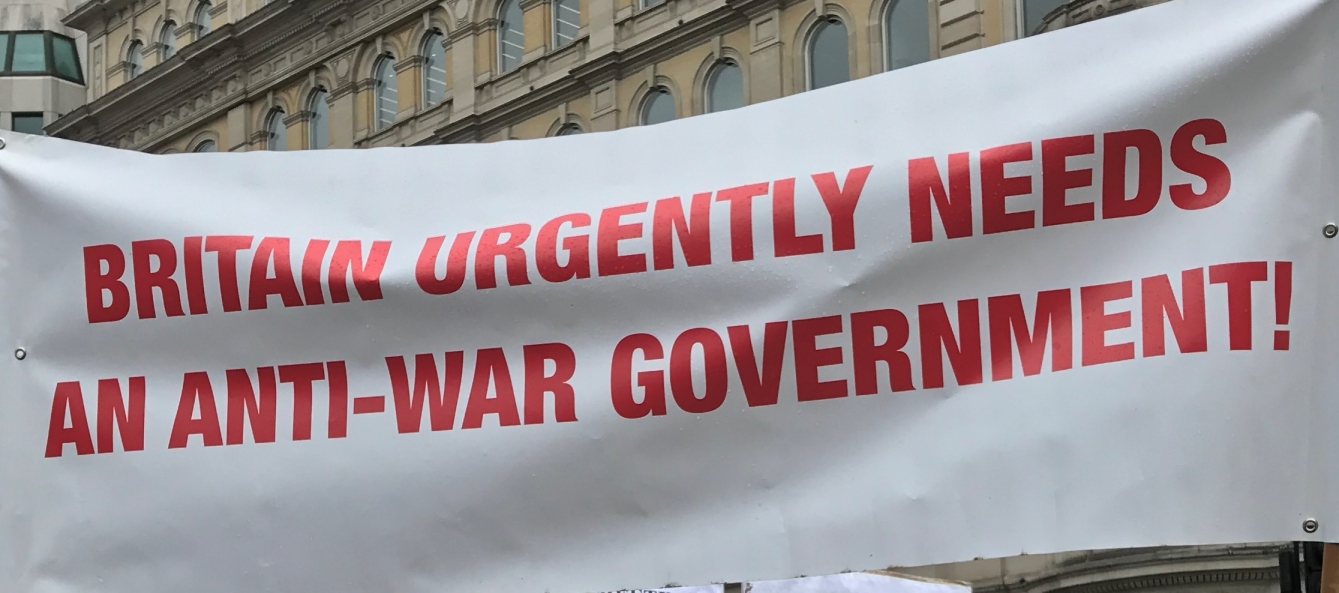
Even before the end of the Second World War, the ruling class was demonstrating that it was hostile to the people's cause. They hatched "Operation Unthinkable" by which they tried to get the Germans to surrender to US General Eisenhower in a deal that violated the "Terms of Surrender of Germany" drawn up by the three allied powers - Britain, the United States and the Soviet Union - on July 25, 1944. The US warmongers and their cohorts including Britain today actively instigate or condone acts of war, aggression, interference and sanctions. Their rendering of what was at stake in World War II is an Anglo-American chauvinist and anti-communist attempt to promote the anachronistic liberal democratic institutions as the pinnacle of human freedom, even as they show their utter contempt for the well-being of the people and their mission to use the state to pay the rich.
The 75th anniversary of the victory over the Nazi menace in Europe underlines the need once again for the people to build their unity around an anti-war perspective and rally round the banner of the cause of peace, freedom and democracy in today's conditions. Today more than ever, it is necessary to oppose wars of aggression and occupation and the use of force to resolve conflicts between nations, so that the dangers of another world war and other calamities that threaten humanity in the most profound ways can be stemmed and prevented. There are concrete demands and struggles such as to dismantle the US-led warmongering NATO alliance, demand that all troops be brought home from foreign soil, and an end to all wars of aggression and occupation. The people demand also the end of coups d'état to attempt regime change, as well as imperialist sanctions, as being criminal acts of war and violations of human rights.
On May 9, 2020, Workers Weekly once more pledges to strengthen the work to envisage and work towards a form of democracy where the people have the decisive say, which would end the domination of pro-war governments. Let us honour the memory of all those who fought to defeat fascism by working towards this goal of an Anti-War Government in Britain, settling scores with the Cold War mentality of the ruling elite, and making the use of force to resolve conflicts between and within nations a thing of the past.
Hail the 75th Anniversary of the Victory over Nazi Fascism in Europe!

The Soviet People celebrate Victory Day in Moscow, USSR,
May 9 1945
May 9 marks the 75th anniversary of Victory in Europe (VE) Day and major commemorative events had been planned by the government to mark this historic occasion. What is clear is that the events which were organised by the government for May 8 were not intended to commemorate the fact that the conclusion of the Second World War was a decisive victory over fascism in which the working people of the world played a decisive role. Everything is done to obscure the causes and nature of the war, as well as its significance, and the fact that the victory over fascism in Europe was led by the Soviet Union, which bore the brunt of the fighting, contributed nearly 50% of all allied expenditure on the war and, of the five major belligerents, suffered nearly 60% of all economic damage caused by the war. Above all the Soviet Union contributed the lives of some 27 million of its population.
The people of Britain and its colonies, as well as the people of many other countries, also gave their lives to rid the world of the Nazi menace and scored a historic victory in 1945, despite extremely difficult conditions and the machinations of their governments. It cannot be forgotten that many people who were colonial subjects gave their lives and made massive sacrifices at a time when they had no right recognised to determine their own affairs, and lived in conditions that were barely distinguishable from those in Nazi-occupied Europe. In Britain, racism was not illegal, operated throughout society, and a colour bar even existed in the armed and auxiliary services.

It also cannot be forgotten that fascism in general, and Germany's Nazis in particular, were financed, encouraged and appeased by the governments and ruling circles of Britain and its closest allies. As is well known, the government of Britain completely betrayed the people of Czechoslovakia in 1938, by signing the infamous Munich Agreement with the governments of France, Nazi Germany and Fascist Italy, but without the participation of the governments of Czechoslovakia and the Soviet Union. The British government had even demanded that the government of Czechoslovakia should not invoke its mutual defence agreement with the Soviet Union in order to appease Hitlerite Germany.
The Agreement, which handed over Czechoslovakia to occupation and dismemberment by Nazi Germany and other powers, was the culmination of the reactionary appeasement policy followed by the British government and its allies. This policy was designed to encourage and reward fascist aggression in general, such as Italy's invasion of Ethiopia, and particularly to encourage Nazi Germany to expand eastwards, to occupy territories such as the Ukraine, as well as the entire Soviet Union. The British government's appeasement policy had long been based on the hope that fascism would crush the construction of the world's first socialist state, so as to fulfil the long-held wish of Churchill and others that communism might be "strangled in its cradle". It was for also this purpose that the ruling circles in Britain, France and the US not only appeased fascism but financed and re-armed Germany, through such means as the 1924 Dawes Plan and the 1935 Anglo-German Naval Agreement.
The Munich Agreement was a great betrayal by the governments of Britain and France, not only of the people of Czechoslovakia, but the people of all countries of Europe and the rest of the world. Winston Churchill said at the time: "The partition of Czechoslovakia under pressure from England and France amounts to the complete surrender of the Western democracies to the Nazi threat of force. Such a collapse will bring peace or security neither to England nor to France... It is not Czechoslovakia alone which is menaced, but also the freedom and the democracy of all nations." In Parliament he condemned Prime Minster Chamberlain, who had contemptuously referred to "a quarrel in a far-away country between people of whom we know nothing," saying: "You were given the choice between war and dishonour. You chose dishonour and you will have war." The Munich Agreement which, amongst other things, ceded Czechoslovakia's important armaments industry to Hitler, sealed the fate of Europe and a year later led directly to the outbreak of World War II in September 1939. It is often conveniently forgotten that Prime Minster Chamberlain also signed a non-aggression agreement with Nazi Germany at Munich in 1938. France too concluded a Non-Aggression Pact with Nazi Germany in the months following the Munich Agreement.

Neville Chamberlain signing the Munich Agreement with
Hitler, 1938
However, despite the plans of the ruling circles of Britain, France and the United States, communism was not strangled. Indeed, it was the Soviet Union's anti-war government led by Joseph Stalin that demanded a policy of "collective security" against fascism. Time and again the Soviet Union sought alliances with Britain, France and other countries in Europe against the menace of fascism, advances that were rejected, the governments of Britain and France preferring instead to appease Hitler and Mussolini. In the same period, it was the communist parties organised in the Communist International that called for a united front of the workers and all democratic people, irrespective of party affiliation, against fascism, a call initially rejected by the leaders of the Labour Party in Britain as well as its sister parties elsewhere. Nevertheless, the call of the Communists for unity in action against fascism, not only in Europe but internationally, was put into practice during the Second World War and was the basis for the victories culminating in VE Day in 1945.
It was the collective security proposals of the Soviet Union which could, if taken up by the imperialist powers, have prevented, or at least limited, the Second World War. Faced with the refusal of Britain and France to take up these proposals, the Soviet Union had no alternative but to sign its own Non-Aggression Pact with Germany, in 1939, order to give it time to prepare for the inevitable Nazi invasion of its territories. When Nazi Germany invaded Poland, and after the Polish State had collapsed, the Soviet Union's Red Army on September 17, 1939, moved into Ukrainian and Byelorussian territories seized by Poland in 1919-20, thus saving millions from the slaughter visited upon the rest of Poland, and moving its forward defensive line several hundred kilometres west. When Nazi Germany invaded the Soviet Union in 1941, the Second World War assumed an anti-fascist character and the whole world was inspired by the sacrifices made by the peoples of the Soviet Union, as well as the decisive role which the Red Army and the government of the Soviet Union played in the defeat of fascism, such as during the famous battle of Stalingrad.
The governments of Britain, the United States and other countries were forced to enter into an alliance with the Soviet Union following Nazi Germany's invasion of that country in 1941. However, the Anglo-American strategy of allowing the armies of Germany and the Soviet Union to annihilate each other was implemented throughout the war and led to the delay in the opening of a second front in western Europe. The 1944 D-Day landings did not take place to relieve the onslaught on the Soviet Union, as its government had demanded since 1941. At that time the policy of the Anglo-Americans was perhaps best summed up by the future US president, Harry Truman who wrote: "If we see that Germany is winning, we should help Russia, and if Russia is winning, we should help Germany, so that as many as possible perish on both sides." Instead the Anglo-Americans waited until after the decisive battle of Stalingrad, the turning point of the war in Europe in 1943, when they became concerned that the victorious Red Army might not only defeat Nazi Germany single-handed but also liberate the whole of western Europe. These fears also help to explain the war crimes carried out by the Anglo-Americans, such as the bombing of Dresden and other German cities that had no military significance during the war.

The Second World War was a great tragedy in which over 60 million people lost their lives. However, it was successfully fought to prevent an even greater tragedy and fascism was defeated. The victory over fascism created the conditions for the liberation of many nations in Africa and Asia and for the working people to advance their cause for progress and social emancipation. The period after the victory over Nazi fascism were a time of great momentum, profound changes and the creation of the socialist camp. In 1945, for example, for the first time in history the trade union centres of all countries came together to found the World Federation of Trade Unions and there was even the expectation that the workers of the world, who had sacrificed so much, would be represented in the highest bodies of the United Nations.
However, history shows that these advances were not welcomed by all. They were opposed by those that had nurtured, appeased and financed fascism before the war and principally by the ruling circles in Britain and the United States. Once the victory over fascism seemed assured, the struggle against communism and to prevent the peoples empowering themselves recommenced. This was clearly evident in the Anglo-American intervention in Greece even before the end of the war and the Anglo-American Operation Unthinkable, the plan for an attack on the Soviet Union in 1945.
It is vital that in remembering the sacrifices made to seal the victory over fascism in 1945 there is no distortion nor falsification of the history of the Second War and especially its causes. It is also important that we understand the lessons of history, not just as something in itself, but as part of providing all the information, the perspective, the outlook which enables the working class and all democratic people to discuss and plan the way forward, as to what kind of new society is needed, how to take matters into our own hands, how to bring about democratic renewal and bring into being a pro-social anti-war government, in order to solve ourselves the many problems facing society.
Receive Workers'
Weekly E-mail Edition: It
is free to subscribe to the e-mail edition
We encourage all those who support the work of RCPB(ML) to also support it
financially:
Donate to
RCPB(ML)
Workers' Weekly is the weekly on
line newspaper of the
Revolutionary Communist Party of Britain (Marxist-Leninist)
Website:
http://www.rcpbml.org.uk
E-mail:
office@rcpbml.org.uk
170, Wandsworth Road, London, SW8 2LA.
Phone: 020 7627 0599: